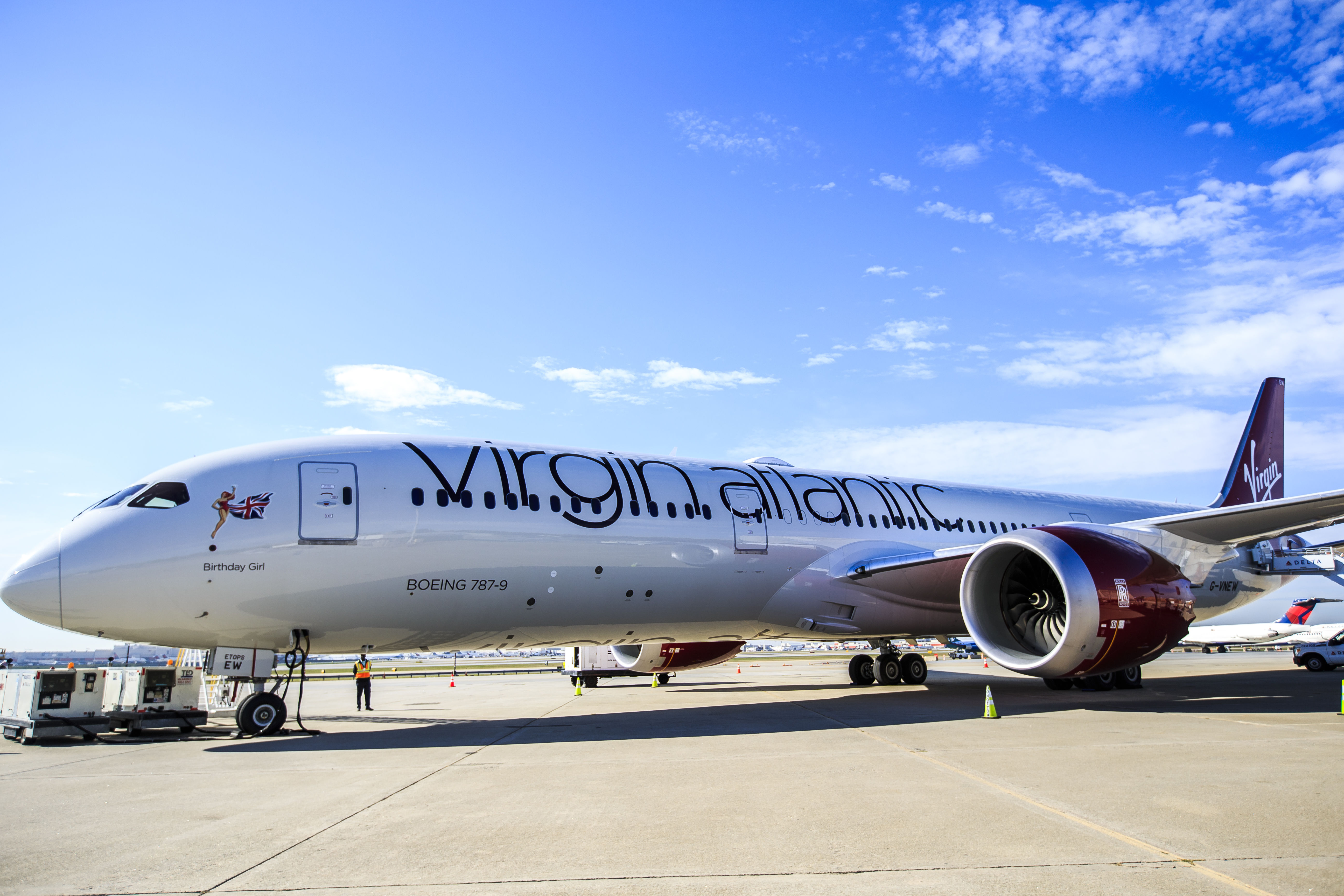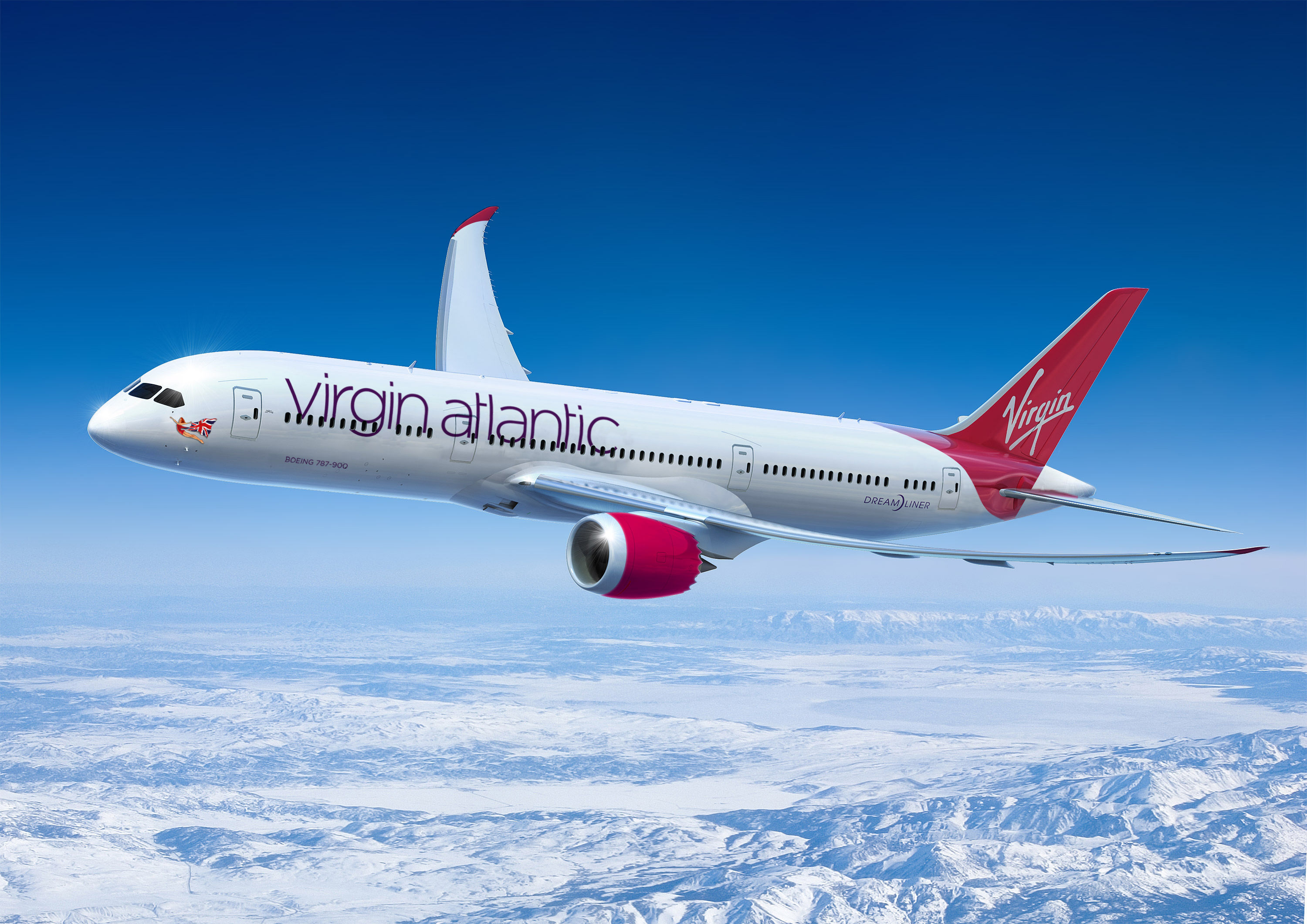Virgin Atlantic pilots teamed up with academics at the London School of Economics and the University of Chicago to come up with a new approach to delivering fuel and carbon efficiency information to pilots to help pilots fly greener.
Collaborating with academics, the airline’s fuel efficiency and sustainability teams developed a process that increases Captains’ awareness of the measures that they could take to improve fuel efficiency. Traditionally, pilots have been presented with a number of things that they can do to improve fuel consumption and carbon efficiency through training and on-board manuals.787_dreamliner_red_engines.jpg
For
the project, Captains were split into four groups. These were based on
delivering standard fuel efficiency information to the Captains, on
three things that they could do before take-off, while in the air, and
upon arrival that have an effect on fuel consumption.
One group was left to continue business as usual, receiving fuel efficiency information in the usual way, while the other three groups were set information on the three sets of behaviours once a month by post – as well as personalised feedback about their fuel efficiency practices. Of these three groups, one was given targets to aim for, and one was given targets with a donation made to charity if the targets were met.
Data from more than 40,000 flights was independently analysed by the university team. They found that those with targets produced the most savings, but there was a significant improvement in fuel efficient behaviours in all groups – leading them to conclude that raising awareness among pilots is enough to drive changes.
They also found from a post study survey that the Captains reported high levels of job satisfaction and 81 per cent of them said that they’d like to receive more fuel efficiency information in future.
One group was left to continue business as usual, receiving fuel efficiency information in the usual way, while the other three groups were set information on the three sets of behaviours once a month by post – as well as personalised feedback about their fuel efficiency practices. Of these three groups, one was given targets to aim for, and one was given targets with a donation made to charity if the targets were met.
Data from more than 40,000 flights was independently analysed by the university team. They found that those with targets produced the most savings, but there was a significant improvement in fuel efficient behaviours in all groups – leading them to conclude that raising awareness among pilots is enough to drive changes.
They also found from a post study survey that the Captains reported high levels of job satisfaction and 81 per cent of them said that they’d like to receive more fuel efficiency information in future.
atlantic_boeing_one.jpg

Image credit: Virgin Atlantic
“When
the university team approached us about doing an evidence-based study
on employee engagement on sustainability, we saw it as a fantastic
opportunity to work more effectively with our pilots on fuel and carbon
efficiency.
They were certainly up for the challenge,” Dr Emma Harvey, head of sustainability at Virgin Atlantic, said. “Consulting closely with an experienced group of Captains, we were able to design something that would work for them. It was a big undertaking, but the impressive study results are a testament to all of those involved.
We’re excited to see how we can build on these findings in future.”
They were certainly up for the challenge,” Dr Emma Harvey, head of sustainability at Virgin Atlantic, said. “Consulting closely with an experienced group of Captains, we were able to design something that would work for them. It was a big undertaking, but the impressive study results are a testament to all of those involved.
We’re excited to see how we can build on these findings in future.”
